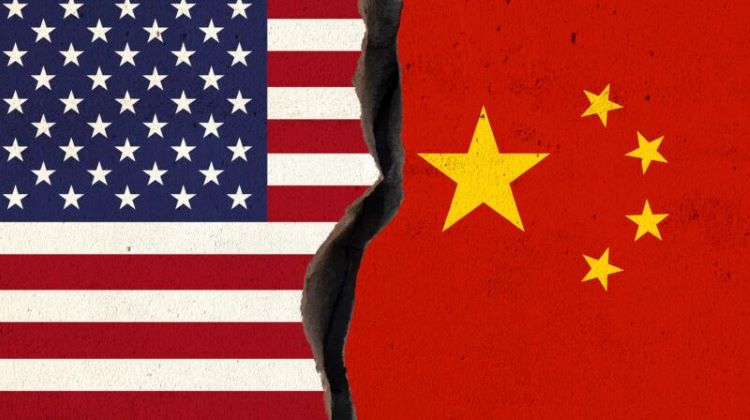Nandini Roy Choudhry, writer
In brief
- The U.S. government has added over fifty Chinese technology companies to its export blacklist, aiming to restrict China’s capabilities in artificial intelligence and advanced computing due to national security concerns.
- The blacklist includes entities involved in military modernization and the development of advanced technologies, with specific companies accused of supplying sanctioned entities like Huawei.
- The Biden administration’s strategy focuses on limiting access to critical technologies while maintaining commercial trade in other areas, amidst rising tensions between the U.S. and China.
Detailed news
The United States of America, in its first such effort under the administration of Donald Trump, added dozens of Chinese technology businesses to its export blacklist on Tuesday. This move comes as the United States is increasing its efforts to restrict Beijing’s capabilities in the areas of artificial intelligence and advanced computing.
Entity list
The Bureau of Industry and Security of the United States Department of Commerce has added eighty organizations on a “entity list,” with more than fifty of those entities coming from China. This list prohibits American businesses from supplying those groups without first obtaining government permits.
As part of the agency’s efforts to further restrict Beijing’s access to exascale computing technology, which can process vast amounts of data at very high speeds, as well as quantum technologies, the companies were blacklisted for allegedly acting in a manner that is contrary to the interests of the United States in terms of both its national security and its foreign policy, the agency stated.
Chinese entity targeted
According to the Commerce Department, dozens of Chinese entities were targeted for their alleged involvement in the development of advanced artificial intelligence, supercomputers, and high-performance artificial intelligence chips for military purposes. The department also stated that two companies were found to be supplying to sanctioned entities such as Huawei and its affiliated chipmaker HiSilicon.
There were 27 Chinese businesses that were blacklisted for procuring things of American origin in order to enhance China’s military modernization, while seven companies were blacklisted for assisting China in advancing its quantum technology capabilities.
Blacklisted by the administration of Joe Biden in 2023, the “entity list” included six subsidiaries of the Chinese cloud-computing company Inspur Group. These subsidiaries were included among the entities that were included on the list.
Strongly condemn
It was reported by Reuters that China’s Ministry of Foreign Affairs issued a statement late on Wednesday night stating that it “strongly condemns” the export restrictions and urged the United States to “stop generalizing national security.”
As stated by Alex Capri, a senior lecturer at the National University of Singapore and author of the book “Techno-Nationalism: How It’s Reshaping Trade, Geopolitics, and Society,” the most recent additions “cast an ever-widening net aimed at third countries, transit points, and intermediaries.”
According to him, Chinese corporations have been able to acquire access to vital dual-use technology in the United States through the use of select third parties. He was alluding to loopholes that have enabled Chinese companies to access technologies in the United States despite prohibitions.
“U.S. officials will continue to step up tracking and tracing operations aimed at the smuggling of advanced semiconductors made by Nvidia and Advanced Micro Devices,” he stated. “These operations are aimed at preventing the sale of these semiconductors.”
The increased export limits come at a time when tensions between Washington and Beijing have been increasing as a result of the Trump administration’s decision to increase tariffs against China.
Chinese AI emergence
As a result of the quick emergence of the Chinese artificial intelligence startup DeepSeek, the adoption of open-source low-cost AI models in China has increased, which has put pressure on major competitors in the United States who have proprietary models that are more expensive.
The so-called “small yard, high fence” strategy was implemented by the administration of Vice President Joe Biden, which imposed extensive export limits against China. These controls covered a wide range of products, from semiconductors to supercomputers. The strategy intends to impose limitations on a limited number of technologies that have a considerable potential for military use, while at the same time preserving the usual flow of commercial interchange in other domains.
He stated that the agency is “sending a clear, resounding message” that the Trump administration will prevent U.S. technologies from “being misused for high performance computing, hypersonic missiles, military aircraft training, and UAVs (unmanned aerial vehicle) that threaten our national security.” Jeffrey I. Kessler, who is the Under Secretary of Commerce for Industry and Security, made this statement.
“The entity list is one of many powerful tools at our disposal to identify and cut off foreign adversaries seeking to exploit American technology for malicious purposes,” he continued. A number of other powerful tools are also at our disposal.
Source : CNBC news




